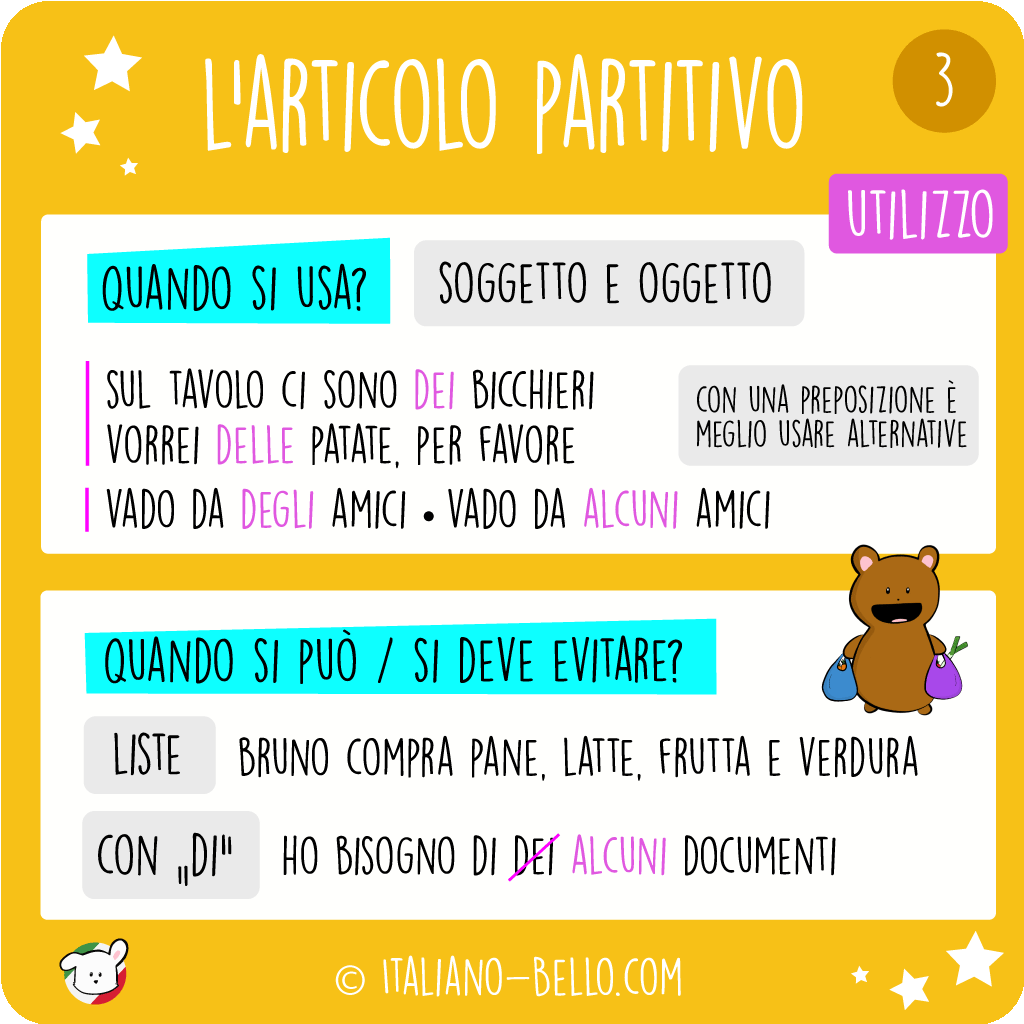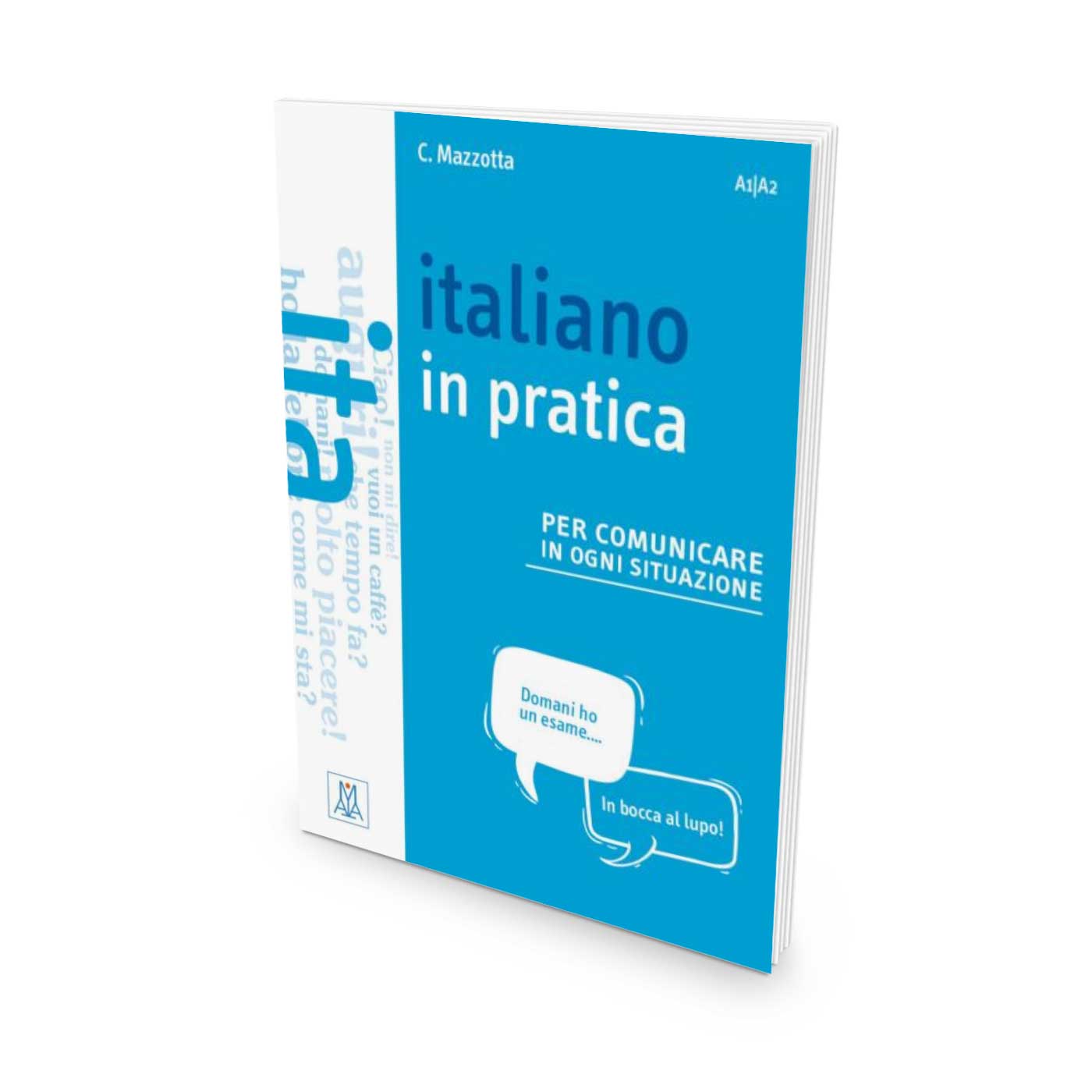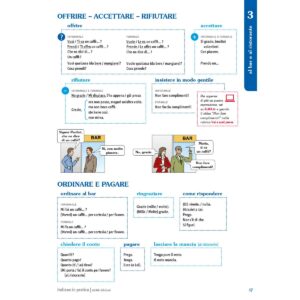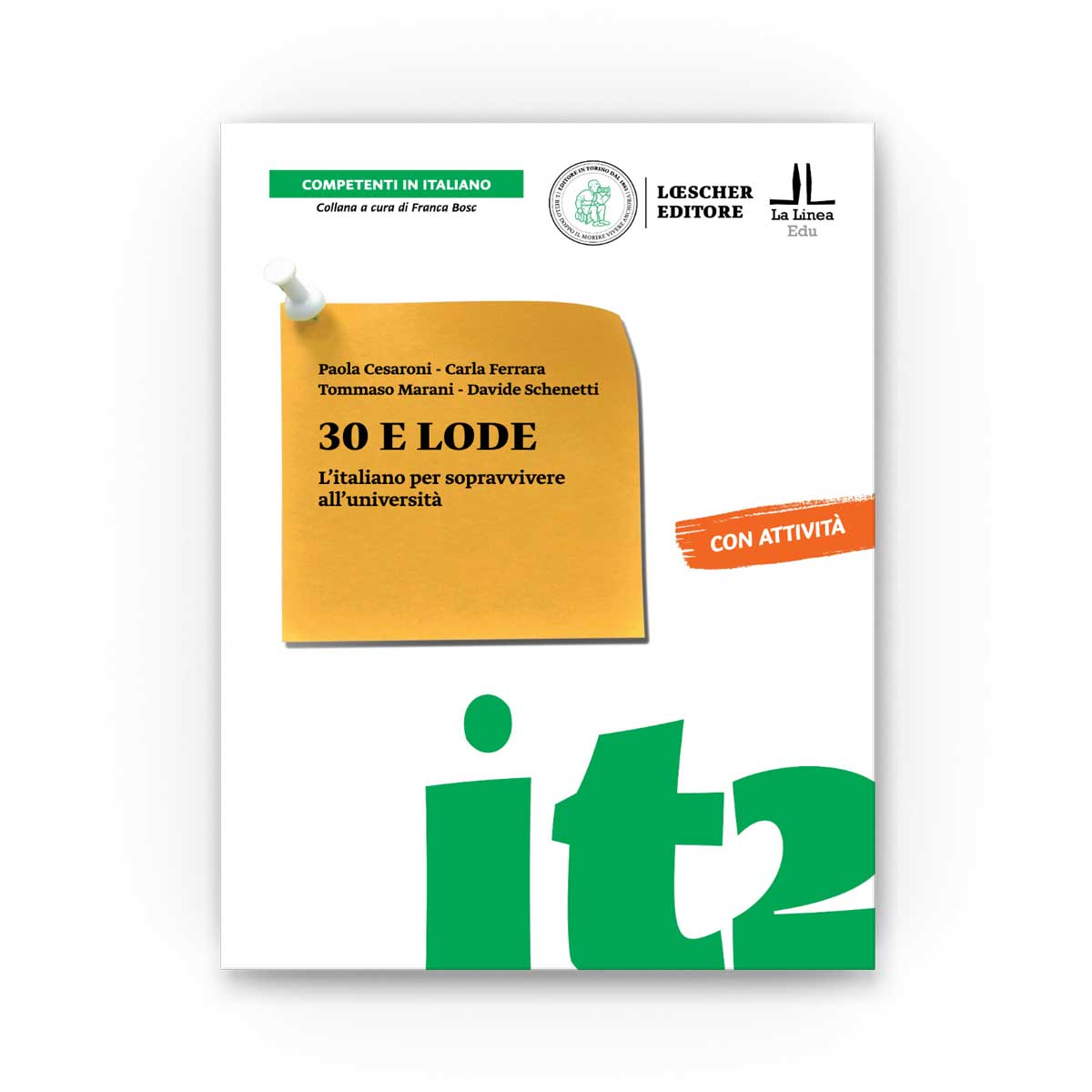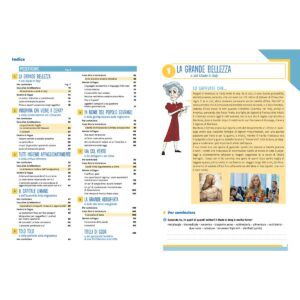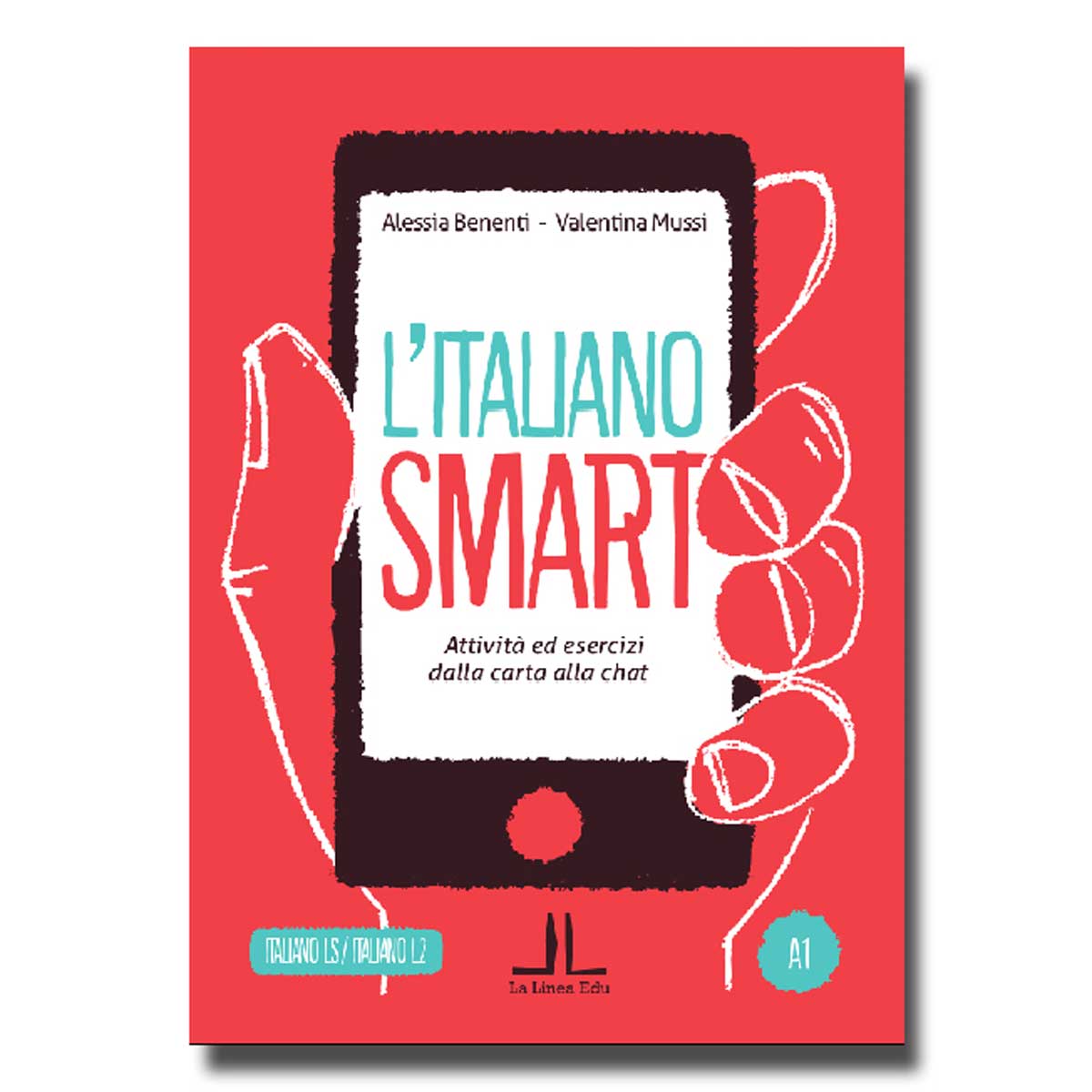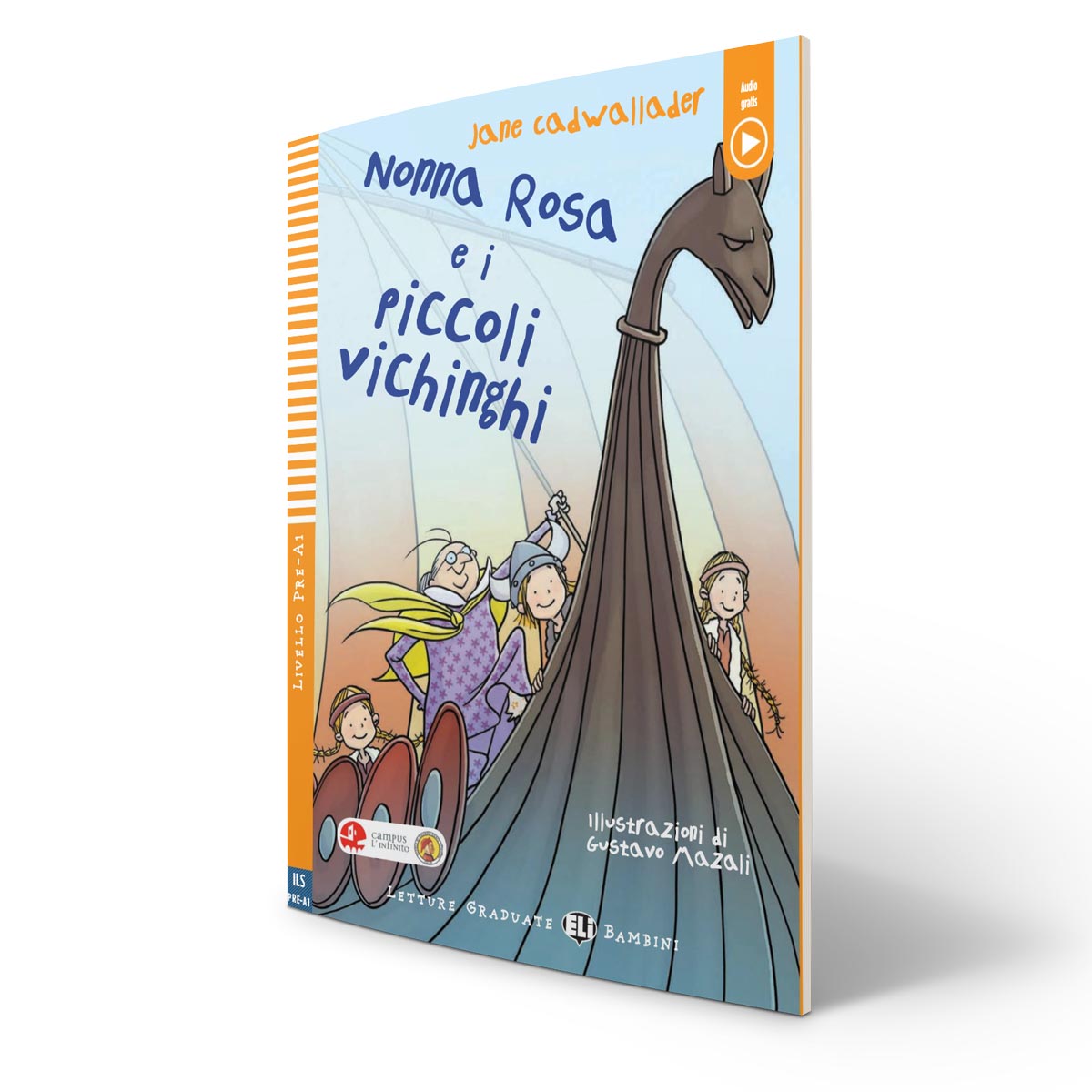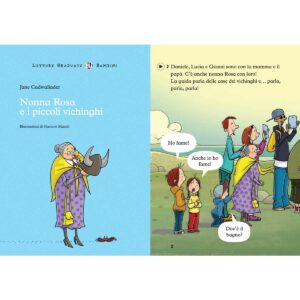The partitive article (it. articolo partitivo) is used to express an indefinite quantity. A distinction is made between the singular and plural partitive article. Learn the partitive article in Italian!
The partitive article in Italian
1) Partitive article in plural
The partitive article is formed by the preposition di, which merges with the definite article. The definite articles in plural are i, gli and le:
| di + | i | dei bambini |
| gli | degli alberi | |
| le | delle case |
Function: undefined quantity
Nel parco ci sono dei bambini.
The most common use of the partitive article is in its plural form. It denotes an undefined quantity and thus represents the plural of the indefinite article. The indefinite article (un, una, …) has namely no plural.
In English, the plural of the partitive article corresponds to an empty space or some.
| un bambino | dei bambini | a child > (some) children |
The plural partitive article has the same meaning as alcuni/e some and can be replaced by it:
dei bambini = alcuni bambini
Overview of the articles
| singular | plural | |
| definite | il bambino | i bambini |
| indefinite | un bambino | dei bambini |
When to use it
You should use the partitive article in the plural if you want to express an undefined quantity of things, especially if it is the subject or the object of the sentence. You can also use it after prepositions, but in a more elegant language it’s avoided and alternatives are preferred.
| Sul tavolo ci sono dei bicchieri. | There are (some) glasses on the table. |
| Vorrei dei pomodori, per favore. | I’d like (some) tomatoes, please. |
| Vado da degli amici. • Vado da alcuni amici. | I go to (some) friends. |
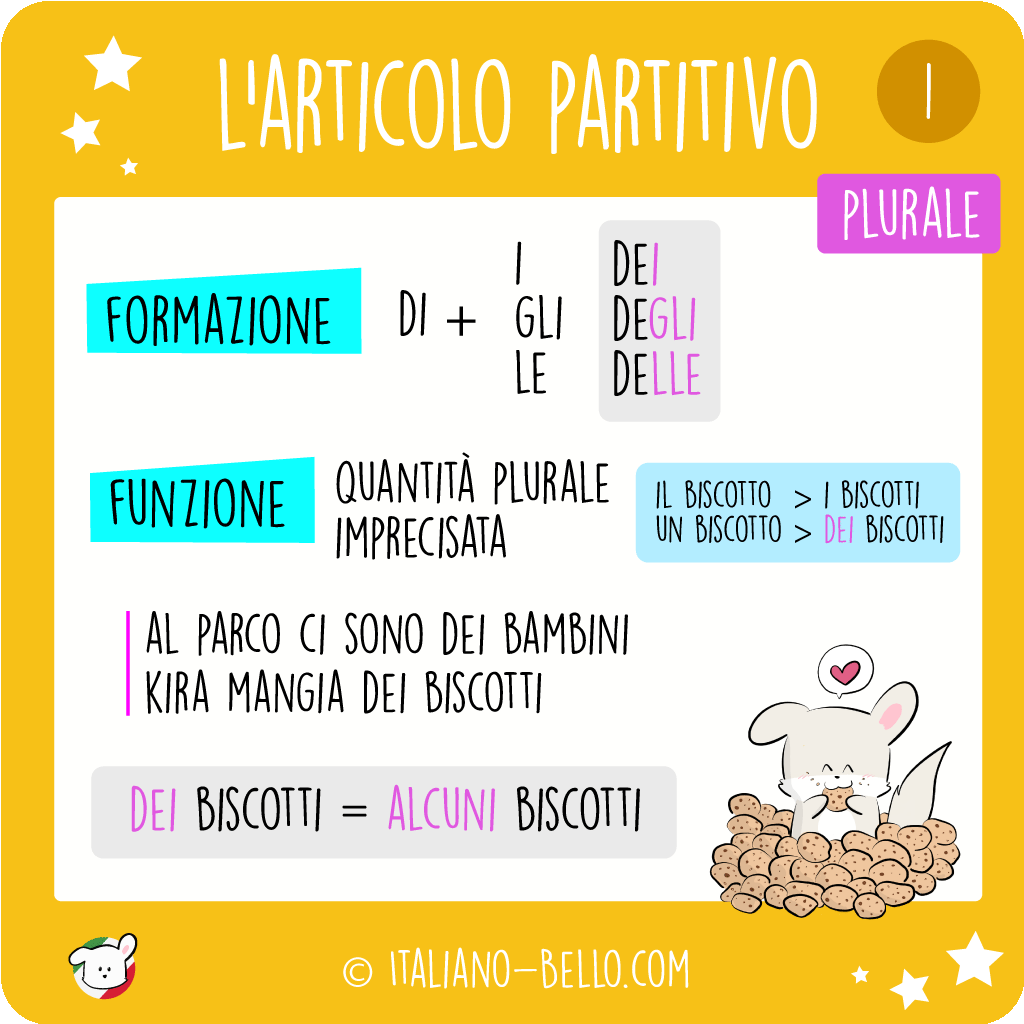
2) Partitive article in singular
The partitive article is formed by the preposition di, which merges with the definite article. The partitive articles in the singular are il, lo, l’ and la.
| di + | il | del pane |
| lo | dello spumante | |
| l’ | dell’acqua | |
| la | della frutta |
Function: Indefinite quantity of uncountable nouns
Vorrei del pane.
In some cases the partitive article is used in the singular. The use of the partitive article in the singular is limited to uncountable things, usually food words like il pane bread or il latte milk*.
*Of course you can count these things, but you should use other words, for example due panini two rolls or tre bottiglie di latte three bottles of milk.
The partitive article in the singular corresponds to the English some, a little bit or an empty space.
| del pane | (some) bread |
The singular partitive article has the same meaning as un po’ di some, a little bit and can be replaced by it.
del pane = un po’ di pane
When to use it
You’ll use the singular partitive article when you have uncountable nouns to indicate an indefinite quantity of them.
| Vorrei del pane, per favore. | I’d like (some) bread, please. |
| Compro della frutta. | I buy (some) fruit. |
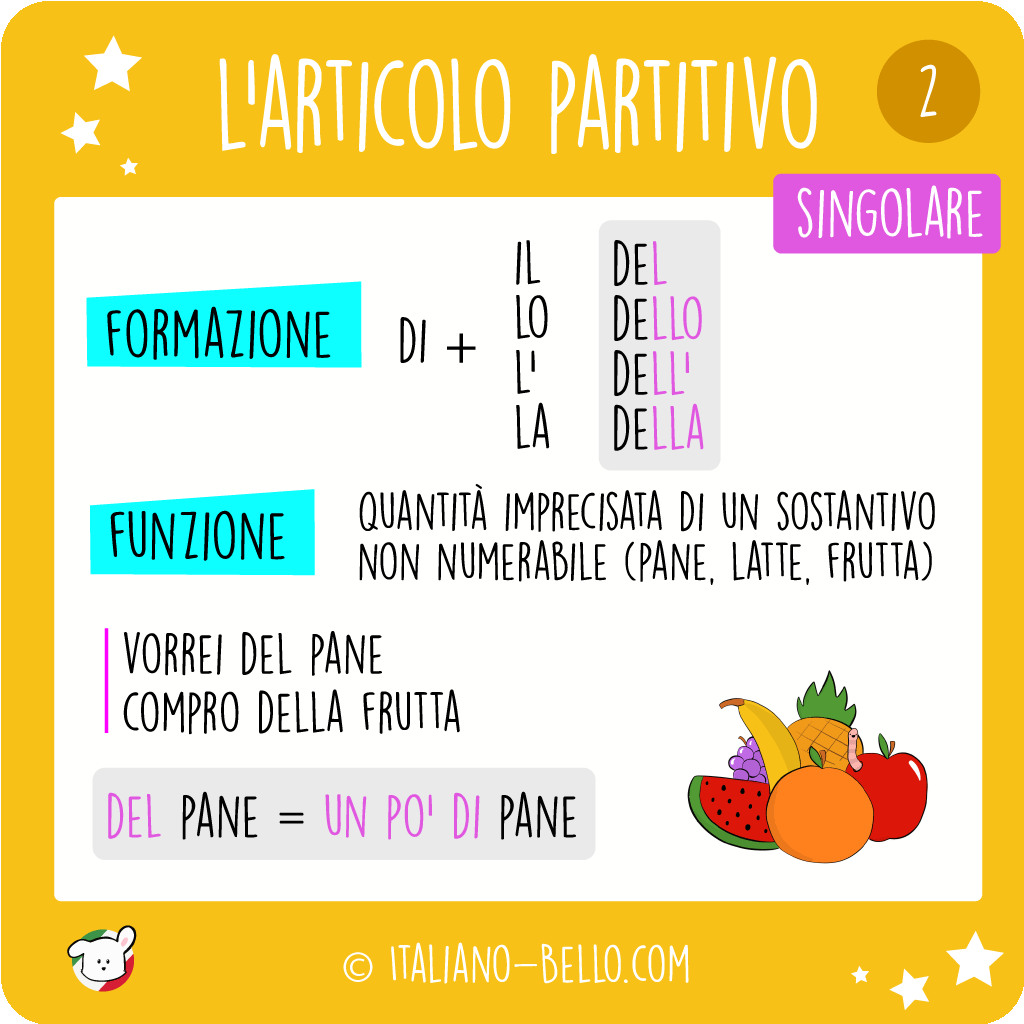
3) When can you leave out the partitive article in Italian?
Lists
Basically, it is better to avoid repeating the partitive article in enumerations. You can even leave it out with two elements.
| Devo comprare pane, latte, frutta, formaggio e vino. | I have to buy bread, milk, fruit, cheese and wine. |
| Sul tavolo ci sono piatti e bicchieri. | On the table there are plates and glasses. |
After the preposition di
After the preposition di you should avoid the partitive article and use alternatives instead.
| Ho bisogno di alcuni documenti. | I need some documents. |
